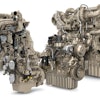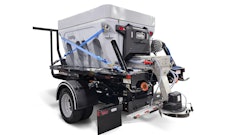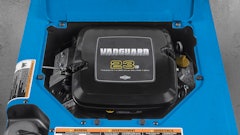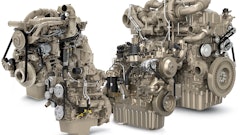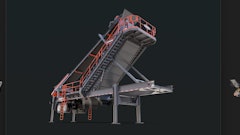Attorneys for NJ Transit laid out arguments late Tuesday for why the agency should not have to pay back $271 million to the U.S. Department of Transportation -- money spent on the scuttled Hudson River rail tunnel project.
The Federal Transit Administration has demanded repayment since November, saying an "early systems work" agreement between NJ Transit and the agency called for repayment of federal funds upon cancellation of the project, known as Access to the Region's Core, or ARC. Governor Christie ended work on the tunnel in October, saying it could go at least $1 billion over its $8.7 billion budget.
Attorneys for Patton Boggs -- a Washington, D.C., law firm hired by the state to challenge the FTA's bill -- said in a 55-page document that the $271 million does not have to be paid back because:
* Federal estimates that the project costs could climb from its budgeted $8.7 billion to as much as $13.7 billion forced the state to pull the plug on ARC. Under federal statutes governing the agreement between NJ Transit and the FTA, repayment is required only if "an applicant does not carry out the project for reasons within the control of the applicant," attorneys said.
* The FTA is demanding $271 million back from NJ Transit, but federal statutes require only that money provided under the federal agency's "New Starts" program be returned. Of the $271 million, just $51 million were New Starts funds. The remaining federal dollars used toward ARC were provided under a congestion-mitigating and air-quality grant, a grant geared toward urban areas and federal stimulus dollars and should not be paid back.
* A portion of the $271 million was spent on preliminary engineering and design work that has "enduring value," even though the project is not going forward. Data compiled from work on the project can be used toward another project that addresses the problem of getting more commuters across the Hudson River, and into Manhattan, it says.
The document notes that New York Mayor Michael Bloomberg is exploring the possibility of extending the No. 7 subway line into Secaucus and that those preliminary plans could be useful.
NJ Transit argues in the document that the residents of New Jersey will be harmed if the $271 million is repaid because it would force the agency to postpone or cancel projects, including work to maintain the condition of trains and buses.
Federal officials on Wednesday confirmed receipt of NJ Transit's response, but declined to discuss it.
"The FTA is currently reviewing New Jersey Transit's response and will make a decision that is in accordance with the law," said U.S. Department of Transportation spokeswoman Olivia Alair.
The FTA has said repeatedly that if a project with an Early Systems Work Agreement is canceled, an applicant shall repay "payments made under the work agreement plus reasonable interest and penalty charges the secretary establishes in the agreement."
The back story
The proposed Access to the Region's Core Trans-Hudson Express Tunnel project was 15 years in the making. The project, budgeted at $8.7 billion, called for the construction of a 9-mile commuter rail line between North Jersey and Manhattan running adjacent to Amtrak's Northeast Rail Corridor. It included the construction of two tunnels under the Hudson River, an underground passenger rail station under West 34th Street, a storage yard and the purchase of passenger rail vehicles and specialized dual-powered locomotives.
The project, which broke ground in June 2009, proposed to create 6,000 temporary construction jobs and 44,000 permanent jobs, and had an expected completion date of 2018.
Christie, citing concerns about cost overruns, estimated overruns of at least $1 billion and as much as $5 billion and shut down the project in October 2010. Despite last-minute negotiations with U.S. Transportation Secretary Ray LaHood, Christie stuck to his decision to kill the project. As a result, the Federal Transit Administration has sent a $271 million bill to NJ Transit for the money it spent on the project, which is being disputed by state officials.


